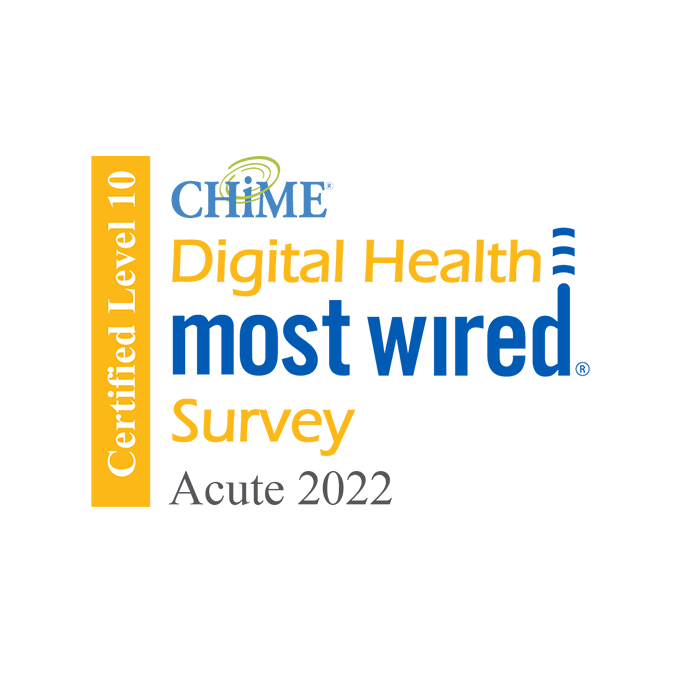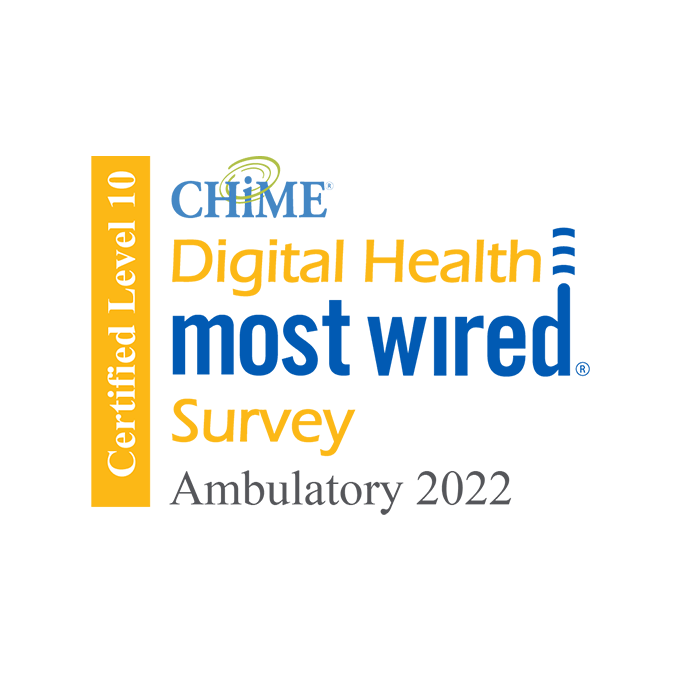Viral Hemorrhagic Fevers
We offer comprehensive preventive services, testing and treatment for all viral hemorrhagic fevers.
Medically reviewed by Natascha Tuznik, M.D. on Nov. 08, 2023.

What Are Viral Hemorrhagic Fevers?
Viral hemorrhagic fevers (VHFs) are diseases caused by a certain class of viruses. They can range from mild to life-threatening.
VHFs affect blood vessels and organs throughout your body. These viral infections can prevent your blood from clotting, which can lead to hemorrhaging (severe bleeding) inside and outside your body.
Types of Viral Hemorrhagic Fevers
There are many types of viral hemorrhagic fevers, including:
- Crimean-Congo hemorrhagic fever
- Dengue
- Ebola virus
- Hantavirus
- Lassa fever
- Marburg hemorrhagic fever
- Yellow fever
Some VHFs, such as yellow fever, are vector-borne diseases, meaning they’re transmitted through infected insects such as mosquitoes and ticks. Others, like Ebola, are zoonotic diseases transmitted to humans through animals. The viruses can also spread from person to person.
VHFs are more common in tropical climates within Africa, Asia and South America. People traveling to these areas should talk to their healthcare providers about disease risks and available vaccinations.
The infectious disease specialists at UC Davis Health have experience testing, diagnosing and treating all types of viral hemorrhagic fevers. Our Travelers Clinic also offers education, vaccinations and other resources for people traveling abroad.
Viral Hemorrhagic Fever Symptoms
Viral hemorrhagic fever symptoms may be mild or severe.
Common Symptoms
Early symptoms of a VHF may include:
- Fatigue and weakness
- Fever
- Headache
- Joint and muscle pain
- Skin rash
- Unexplained nosebleeds or bleeding gums
- Vomiting, diarrhea or stomach pain
Emergency Symptoms
Get immediate medical attention if you have:
- Bleeding from your ears, eyes, mouth or rectum
- Disorientation or confusion
- Difficulty breathing
- Pale, clammy or cold skin (signs of shock)
- Rapid or irregular heart rate
- Reduced urine output
- Yellow skin or whites of eyes (jaundice)
VHF Risk Factors and Transmission
Viral hemorrhagic fevers spread through contact with infected insects, animals or people.
Animal or Insect Bites
Infected mosquitos, ticks, bats, rats, monkeys and other animals can act as hosts, or organisms that feed the virus and allow it to replicate. Bites from a host animal can spread VHF diseases.
Indirect Contact With Host
Contact with the urine, droppings or organs of an infected animal can spread these diseases. Contact with infected objects, such as needles and bedsheets, can also transmit infections.
Exposure to Body Fluids
Exposure to blood or other body fluids (saliva, urine, semen, breast milk and others) of someone infected with a VHF can cause person-to-person transmission.
Travel to High-Risk Areas
VHFs are endemic to sub-Saharan Africa, parts of Asia, South America and other tropical regions. Travel to these areas increases your risk of exposure to these viruses.
Diagnosing Viral Hemorrhagic Fevers
Early diagnosis is very important and increases the chances of survival in the deadliest viruses, such as Ebola and Marburg virus.
Even if your symptoms seem mild at first, see your healthcare provider right away if you have any known VHF risk factors. Your provider will use personal protective equipment, such as a face mask, goggles, gloves and gown, during the diagnostic process.
Your provider will do a complete physical exam and ask you about your symptoms, medical history and travel history. Tests for viral hemorrhagic fevers usually include blood and urine tests. Your provider may order imaging exams if they suspect organ damage.
Treatments for Viral Hemorrhagic Fevers
There is no known cure for viral hemorrhagic fevers. Treatment is focused on reducing the risk of life-threatening complications such as organ failure and uncontrolled bleeding.
Antiviral Medications
Antiviral therapies, such as ribavirin, stop viruses from replicating inside your body. This treatment may improve outcomes early in the disease for some VHFs, such as Lassa virus and Crimean-Congo hemorrhagic fever.
Monoclonal Antibodies
There are two types of monoclonal treatments approved by the U.S. Food and Drug Administration (FDA) for Ebola. Monoclonal antibodies target a specific protein on the virus’s surface and prevent it from entering other cells in your body.
Supportive Care
Rest, hydration (usually through intravenous fluids) and medication can help reduce symptoms of vomiting, fever and diarrhea. Avoid medications that can increase your risk of bleeding, such as aspirin or ibuprofen.
Preventing Viral Hemorrhagic Fevers
You can take steps to stay safe and reduce your risk of contracting or spreading viral hemorrhagic fevers.
Avoid Contact With Body Fluids and Animals
Avoid contact with blood, urine, semen, vomit, sweat, feces and other fluids from people or animals that may be infected.
Don’t Share Personal Items
Avoid sharing razors, towels, bedsheets and other items that could carry viruses. Clean and disinfect shared surfaces frequently, such as countertops and handrails.
Get Vaccinated
Vaccines are currently available for some VHFs, including yellow fever. Talk to your healthcare provider about vaccinations before you travel.
Prevent Insect Bites
Use insect repellant and wear long-sleeved shirts, pants and boots. Use mosquito nets when sleeping. Treat gear and clothing with permethrin, an insecticide.
Use Personal Protective Equipment
Healthcare workers and veterinary workers should wear personal protective equipment (PPE). PPE includes a mask, gown, gloves, goggles, head cover and rubber boots.
Wash Your Hands
Wash your hands frequently with soap and water. Use alcohol-based hand sanitizer or a chlorine solution if soap and water are not available.
Yellow fever leads to
30KDeaths each year worldwide
Ebola virus fatality rate
50%Of people infected with Ebola will die
Sources: Centers for Disease Control and Prevention (CDC): Yellow Fever
Request an Appointment
As Sacramento's No. 1 hospital, you'll benefit from unique advantages in primary care and specialty care. This includes prevention, diagnosis and treatment options from experts in 150 specialties.
Referring Physicians
To refer a patient, you can submit an electronic referral form or call.
800-4-UCDAVIS
Patients
For questions and appointment information
Consumer Resource Center
800-2-UCDAVIS

Ranked among the nation’s best hospitals
A U.S. News & World Report best hospital in cancer, cardiology, heart & vascular surgery, diabetes & endocrinology, ENT, geriatrics, neurology & neurosurgery, obstetrics & gynecology, and pulmonology & lung surgery.

Ranked among the nation’s best children’s hospitals
A U.S. News & World Report best children’s hospital in diabetes & endocrinology, nephrology, and orthopedics*. (*Together with Shriners Children’s)

Ranked Sacramento’s #1 hospital
Ranked Sacramento’s #1 hospital by U.S. News, and high-performing in COPD, colon cancer surgery, diabetes, heart attack, heart failure, hip fracture, hip replacement, kidney failure, leukemia, lymphoma & myeloma, lung cancer surgery, ovarian cancer surgery, pneumonia, prostate cancer surgery, stroke, TAVR, uterine cancer surgery, gastroenterology & GI surgery, and orthopedics.

The nation’s highest nursing honor
UC Davis Medical Center has received Magnet® recognition, the nation’s highest honor for nursing excellence.

“Most Wired” for acute care
UC Davis Health has been recognized as a level 10 out of 10 in the Digital Health “Most Wired” program from the College of Healthcare Information Management Executives (CHIME). The honor recognizes excellence in using technology to improve the delivery of care.

“Most Wired” for ambulatory care
UC Davis Health has been recognized as a level 10 out of 10 in the Digital Health “Most Wired” program from the College of Healthcare Information Management Executives (CHIME). The honor recognizes excellence in using technology to improve the delivery of care.

World-class cancer care
One of ~56 U.S. cancer centers designated “comprehensive” by the National Cancer Institute.

A leader in health care equality
For the 11th consecutive year, UC Davis Medical Center has been recognized as a “Leader in LGBTQ+ Healthcare Equality.”

